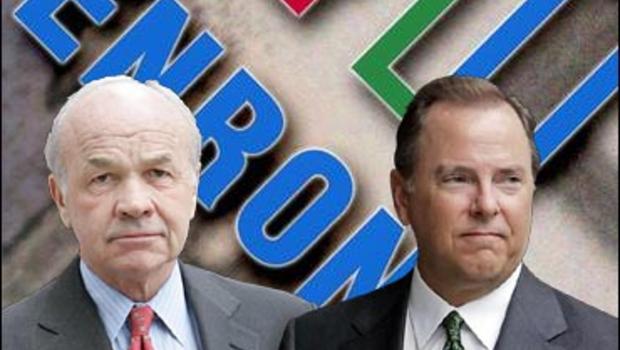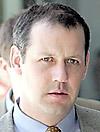 The glacial pace of the criminal trial of former key Enron executives Ken Lay and Jeff Skilling quickened this week, as former Enron Broadband CEO Ken Rice finished his testimony after not quite three days on the stand.
The glacial pace of the criminal trial of former key Enron executives Ken Lay and Jeff Skilling quickened this week, as former Enron Broadband CEO Ken Rice finished his testimony after not quite three days on the stand.
Although the mainstream media accounts of the trial continue to be generally favorable for the prosecution and, as such, the trial remains an extremely difficult one for the defense, my sense is that the biggest news after three weeks is that this trial is settling in to being a very difficult one for the prosecution.
The holes in the prosecution’s case are apparent after just two witnesses. The Task Force inexplicably spent almost three times longer with its first witness — Mark Koenig — than it did with Rice, which put the trial on its initial glacial pace.
Then, in an apparent reaction to that miscue, the prosecution seemingly hurried through Rice’s testimony, who is arguably the more important witness of the first two.
Moreover, much of the substance of the testimony of both witnesses was rather odd. Koenig claimed that he believed that Skilling and Lay misled the investment community in various ways, but he didn’t know the mechanics of how that was supposedly accomplished.
On the other hand, Rice asserted that Skilling misled the investment community on the prospects of Enron’s broadband unit, but he didn’t implicate Lay in any alleged wrongdoing at all.
Then, on cross-examination, Rice conceded that he believed Enron Broadband had great long-term potential, but that Skilling and he were involved in improperly hiding some of the unit’s short-term problems.
To make matters worse for the Task Force, the testimony of both men barely touched on a key element of the prosecution’s case — the alleged huge conspiracy within Enron to cover up the wrongdoing at the company.
Indeed, when the prosecution asked Rice on re-direct about whether he was involved in such a conspiracy, Rice replied unenthusiastically that “Mr. Skilling and I had misled investors on a number of occasions about the prospects of our business” at the broadband unit.
So much for the biggest conspiracy of all time.
But perhaps most importantly, both Koenig and Rice admitted during cross-examination that, despite testifying now that they were involved in lying about Enron to the investment community years ago, neither of them made any statement to Skilling, Lay or anyone else at the time of the supposed lies about the wrongdoing.
Similarly, neither of these key prosecution witnesses testified that either defendant ever once acknowledged telling a lie. That lack of evidence of fraudulent intent dovetails with the defense’s theory that Koenig and Rice are only now claiming that they were involved in wrongdoing to hedge their risk of long prison sentences under their plea deals with the prosecution.
That the prosecution had Rice dead to rights on illegal insider trading charges at the time he cut his plea deal also didn’t help his credibility, either.
So, after filing and publicizing a lengthy indictment against Lay and Skilling that asserts a wide array of alleged corporate crimes, the Task Force doesn’t want the jury to see that indictment (although the Lay-Skilling team does) and the Task Force’s case appears to have come down to a plain “pump and dump” case — Skilling and, to a lesser extent, Lay touted the failing company’s shares while selling their own (that Lay’s sales were forced under margin calls is a knawing problem with that theory that the Task Force has not even addressed, yet).
That theory of the case plays on “the presumption” in such cases — i.e., that Lay and Skilling are rich and Enron collapsed, so they must be guilty of something for failing to announce to the investing public that Enron was really just a highly-volatile trading company rather than the more stable logistics company that they contended Enron had become.
After three weeks of trial, it would not be surprising if some of the jurors are saying to themselves about that theory: “Is that all you’ve got?”
Finally, sometimes small things in big trials are the best indicators of problems.
Throughout the trial, Judge Lake has ordered the prosecution to advise the defense of its next five witnesses.
As late as yesterday evening, the prosecution still hadn’t even decided on its next five witnesses, and at least one of those witnesses — Koenig’s former aide, Paula Rieker — will likely be largely duplicative of Koenig’s earlier testimony.
That the prosecution is fumbling over the order of its witnesses at this early stage of the trial is a pretty darn good indication that this is not a prosecution team that is confident in its case.
Like this:
Like Loading...
 This Eyewitness News article reports on a rather unusual reason for a big-city traffic jam:
This Eyewitness News article reports on a rather unusual reason for a big-city traffic jam:

